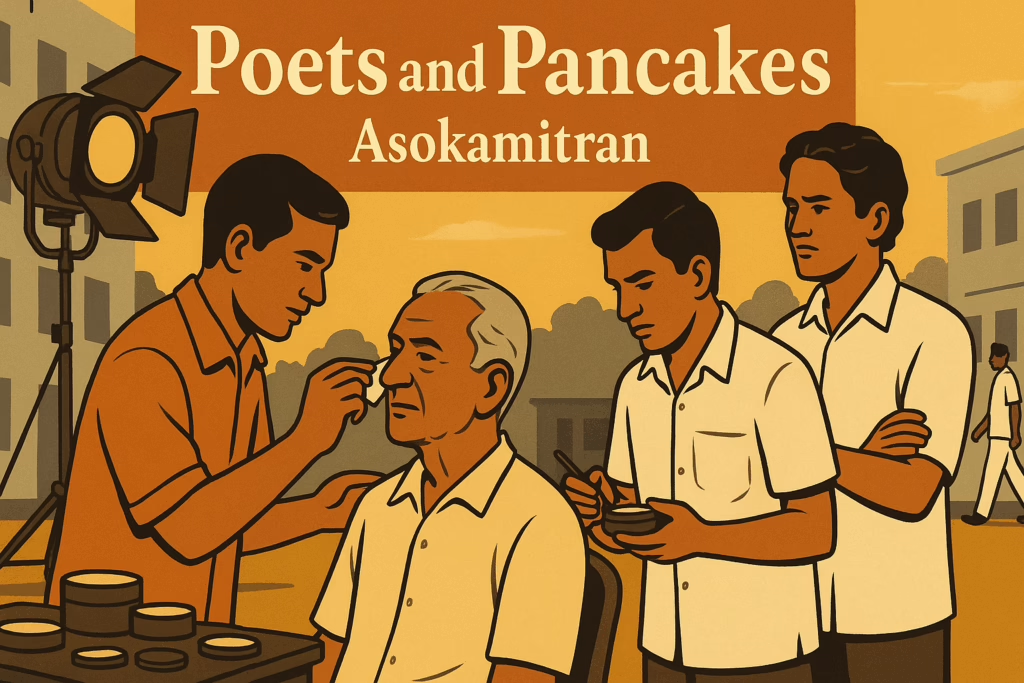Poets and Pancakes, written by Jagadisa Thyagarajan (pen name Asokamitran), offers a witty, insightful look into the everyday workings of Gemini Studios—one of India’s most iconic film studios of the mid-twentieth century. Through gentle humour, keen observation, and subtle satire, the author reveals the quirky personalities, hidden frustrations, creative energies, and chaotic routines that shaped studio life behind the glamour of cinema. From the overheated make-up room to the lofty ambitions of struggling artists, from Subbu’s brilliance to the mysterious visit of an English poet, every incident uncovers a deeper truth about human nature, workplace politics, and the old-world charm of Indian filmmaking.
To help students explore this chapter in depth and prepare effectively for CBSE Higher Secondary examinations, this article compiles a comprehensive set of Additional Questions and Answers. These include short responses, long analytical answers, HOTS questions, extract-based practice, and value-based reflections designed to strengthen conceptual understanding and enhance exam-writing skills. By engaging with these questions, learners can appreciate the humour and nuance of Asokamitran’s narrative while preparing confidently for board exams.
Summary of this text along with textual questions and answers can be found in the previous article.
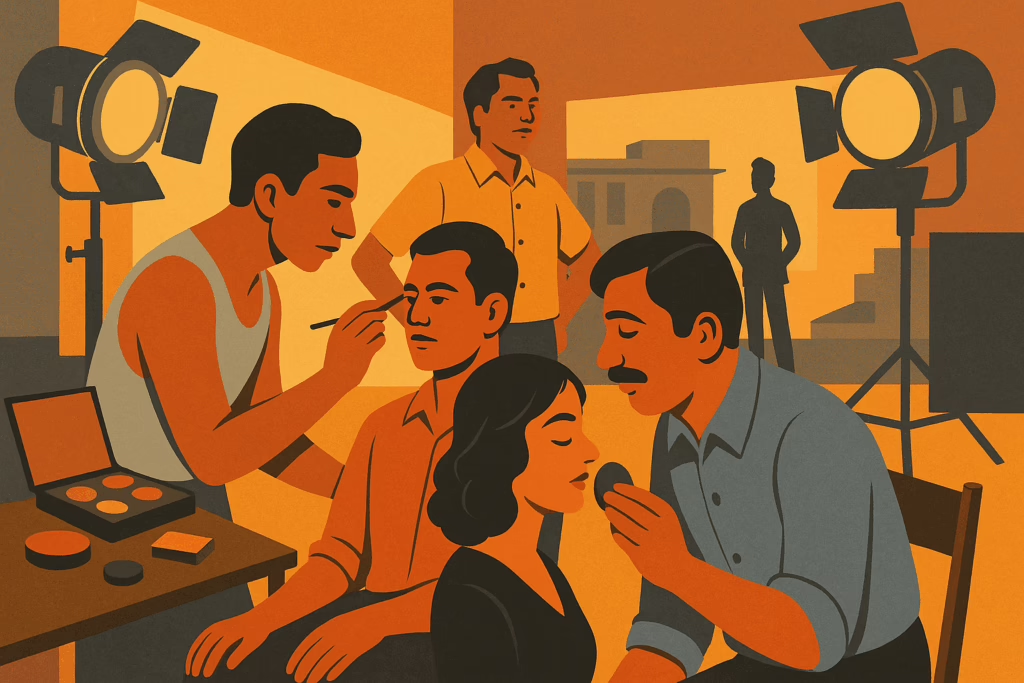
A. SHORT ANSWER QUESTIONS (2–3 marks)
1. Why does Asokamitran call Gemini Studios “a dream factory”?
Asokamitran calls Gemini Studios a “dream factory” because it produced films full of fantasy, glamour, and imagination, while the real work behind the scenes was chaotic, mundane, and far removed from the magic seen on screen.
2. What made the Pancake make-up room a place of suffering?
The Pancake room was unbearably hot due to powerful incandescent lights; thick layers of makeup were applied quickly and roughly, making actors feel uncomfortable, sweaty, and irritated throughout the process.
3. Why did the office boy feel Subbu was responsible for all his failures?
The office boy believed Subbu’s closeness to the Boss gave him unfair advantage and influence. He assumed Subbu blocked his opportunities, although in truth his own talents did not match his ambitions.
4. How does the author describe the attitude of Gemini Studios towards communism?
The employees strongly disliked communism but did not fully understand what it meant. They associated communists with violence and destruction and feared them without any rational basis.
5. What does the author mean when he calls the legal adviser “the opposite”?
He is ironically called “the opposite” because, instead of solving problems, he often created them. His actions, such as recording an actress’s angry outburst, damaged careers and made situations worse.
6. Why was the visit of the English poet a failure?
The English poet’s speech was delivered in an accent and style impossible for the studio workers to understand. His literary concerns did not match the interests of the film crowd, resulting in complete confusion.
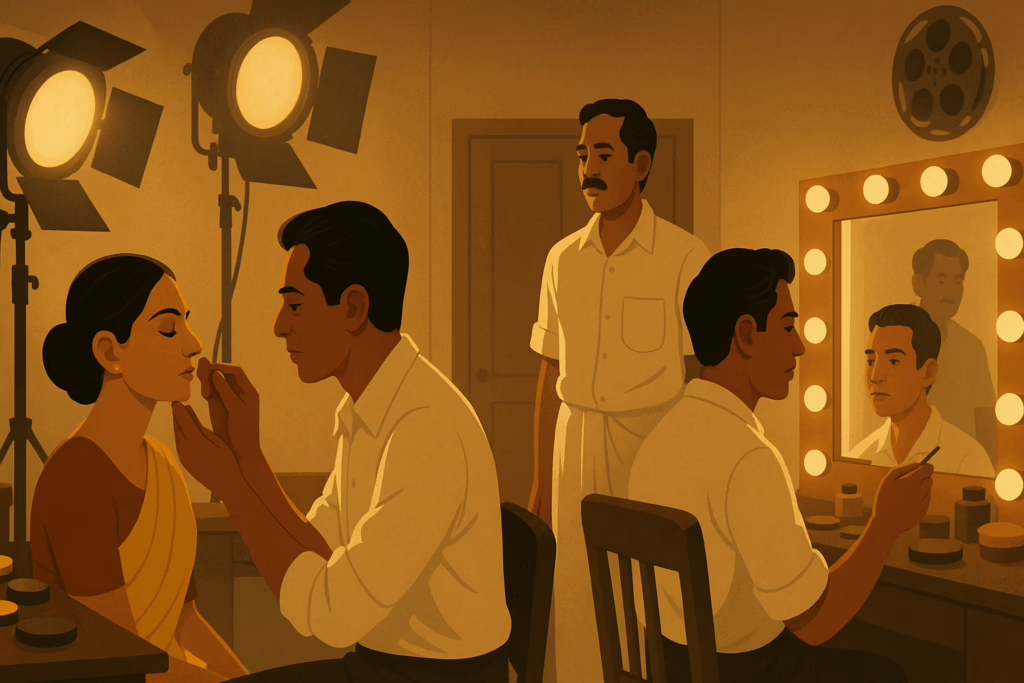
B. LONG ANSWER QUESTIONS (5–6 marks)
7. Discuss the humour and satire in Asokamitran’s portrayal of the make-up department.
Asokamitran uses gentle humour to expose the absurdities of studio life. He describes the make-up men as though they owned the actors’ faces and created “crimson-hued monsters.” He satirises the overuse of Pancake cream, the chaotic work environment, and the exaggerated importance given to minor roles. This humour not only makes the narrative enjoyable but also highlights the artificiality and eccentricities of early Indian cinema.
8. Why is Kothamangalam Subbu considered the “No. 2” of Gemini Studios?
Subbu was multi-talented and could instantly produce creative ideas to satisfy the Boss. He was an excellent poet, a gifted writer, and a natural actor who often overshadowed lead performers. His loyalty to the Boss was unwavering, and he carried out instructions enthusiastically. All these qualities made him indispensable, earning him the title of “No. 2” in the studio hierarchy.
9. In what way does the chapter highlight the contrast between literature and filmmaking?
The chapter shows that filmmaking is practical, commercial, and dependent on mass appeal, while literature demands imagination, intellectual exploration, and subtle expression. The English poet’s visit reveals this gap clearly: his refined concerns meant nothing to the studio workers, who dealt daily with makeup, lights, and film shots. This contrast emphasises how different the artistic worlds of cinema and poetry truly are.
10. How does the author’s discovery of Stephen Spender’s identity serve as a moment of revelation?
The author had long wondered why an English poet spoke at Gemini Studios. Years later, when he read The Encounter in the British Council Library and found Stephen Spender’s name as editor, he understood the visit’s purpose. This delayed revelation ties together earlier confusion and shows how literature helps clarify unexplained events from the past.
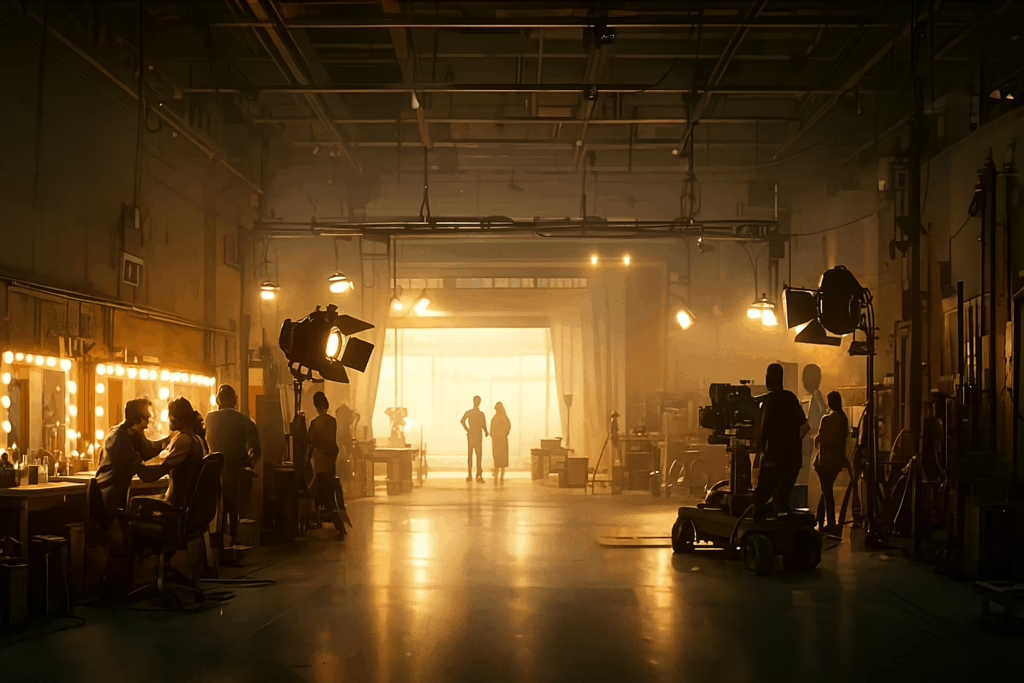
C. HOTS (Higher Order Thinking Skills)
11. What does the office boy’s frustration reveal about the nature of ambition?
His frustration shows that ambition without talent or effort leads to bitterness. He dreamed of stardom without developing the necessary skills, and when reality disappointed him, he blamed others instead of accepting responsibility.
12. Why is the moral rearmament army (MRA) portrayed with admiration?
They are admired for their technical excellence, impressive staging, and dedication to moral themes. Their performances brought professionalism and artistic quality that deeply influenced Tamil theatre for years.
13. How does Asokamitran use satire to criticise blind loyalty?
By describing how everyone praised the Boss excessively and how Subbu’s loyalty overshadowed his own identity, the author highlights the dangers of excessive obedience in hierarchical workplaces.
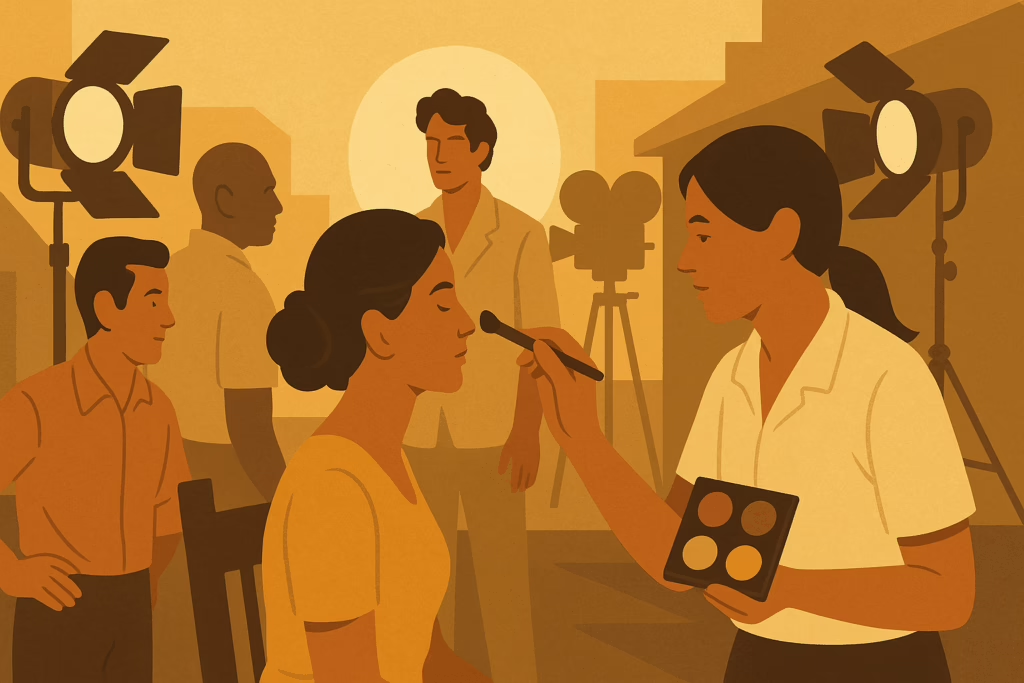
D. EXTRACT-BASED QUESTIONS
Extract 1:
“The make-up department was first headed by a Bengali.”
a) Why does the author mention the region?
To show the diversity of the department, which included people from several states, making it a symbol of national integration.
b) What role did this person play?
He headed the make-up department and supervised the transformation of actors for shooting.
c) How does this line contribute to the chapter’s humour?
It humorously suggests that film studios accidentally achieved national unity long before the government promoted it.
Extract 2:
“The Englishman’s visit remained an unexplained mystery.”
a) Who was the Englishman?
He was Stephen Spender, the poet and editor.
b) Why was the visit mysterious?
No one understood his speech or why he had been invited.
c) How was the mystery resolved?
Years later, the author discovered his identity while reading a magazine at the British Council Library.
E. VALUE-BASED QUESTIONS
14. What lessons about workplace dynamics does the chapter teach us?
The chapter teaches that jealousy, ambition, loyalty, insecurity, and ego all shape workplace behaviour. It shows the importance of humility, teamwork, and understanding human weaknesses.
15. What value does the chapter attach to observation and reflection?
Asokamitran demonstrates that close observation of everyday life reveals deeper truths about people and society. His reflections help the reader appreciate the humour, irony, and emotion hidden in ordinary events.


